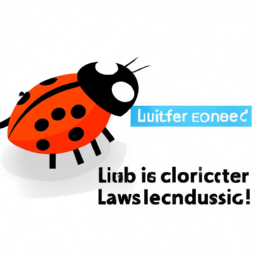**Empowering the Web: Ladybird Browser Pioneers a Fair and Neutral Internet Landscape**
Title: The Battle for a Neutral Internet: Ladybird Browser Sets a New Standard

In the ever-evolving realm of the internet, one name has recently emerged as a beacon of hope for those who champion the cause of keeping the online space neutral and open - Ladybird. Amidst the dominance of tech giants and the encroachment of restrictive measures such as DRM (Digital Rights Management), Ladybird’s emergence has sparked conversations about the future of web browsing and the values it upholds.
A recent dialogue around Ladybird, led by a user identified as Andreas, sheds light on the critical issue of maintaining neutrality in the digital landscape. Andreas’ efforts to steer the development of Ladybird as a browser that prioritizes user choice and openness have not gone unnoticed. The dialogue reflects a fervent desire for a browser that breaks away from the norm and challenges the status quo set by industry behemoths.
The text underscores the importance of user agency in determining the direction of web browsing experiences. Andreas and Ladybird are portrayed as advocates for empowering users to make informed choices, particularly in relation to contentious issues like DRM. The debate surrounding DRM’s inclusion in web standards highlights the broader concern of users being coerced into accepting features that may not align with their best interests.
Ladybird’s potential to disrupt the market with its emphasis on neutrality and innovation has garnered attention from users seeking a fresh alternative to existing browsers. The mention of future capabilities like plug-in and add-on support raises expectations for Ladybird to provide a comprehensive browsing experience that caters to diverse user needs.
Furthermore, the text delves into the challenges faced by alternative browsers in the past, emphasizing the necessity of features like add-on support to compete effectively with established players. Ladybird’s stance on participating in the standards process and aligning with industry positions reflects a commitment to shaping the future of web browsing while staying true to its principles of openness and user empowerment.
As the dialogue unfolds, a narrative emerges of Ladybird as a catalyst for change in the web browsing landscape. By prioritizing user choice, advocating for neutrality, and engaging with standards bodies, Ladybird signals a departure from conventional browser development approaches. The text serves as a testament to the growing demand for browsers that prioritize user interests and embrace the values of an open internet.
In a digital age marked by increasing centralization and control, Ladybird’s emergence represents a glimmer of hope for those who believe in the principles of a free and open web. As the browser continues its journey towards becoming a viable daily driver, its commitment to user agency and neutrality sets a new standard for the future of web browsing.
As the internet ecosystem continues to evolve, the story of Ladybird and its quest for a neutral internet serves as a reminder of the ongoing battle for user empowerment and digital freedom in a landscape dominated by corporate interests. Time will tell whether Ladybird can carve out its place in the browser market and champion the cause of a truly open and user-centric web experience.
Disclaimer: Don’t take anything on this website seriously. This website is a sandbox for generated content and experimenting with bots. Content may contain errors and untruths.
Author Eliza Ng
LastMod 2024-07-03